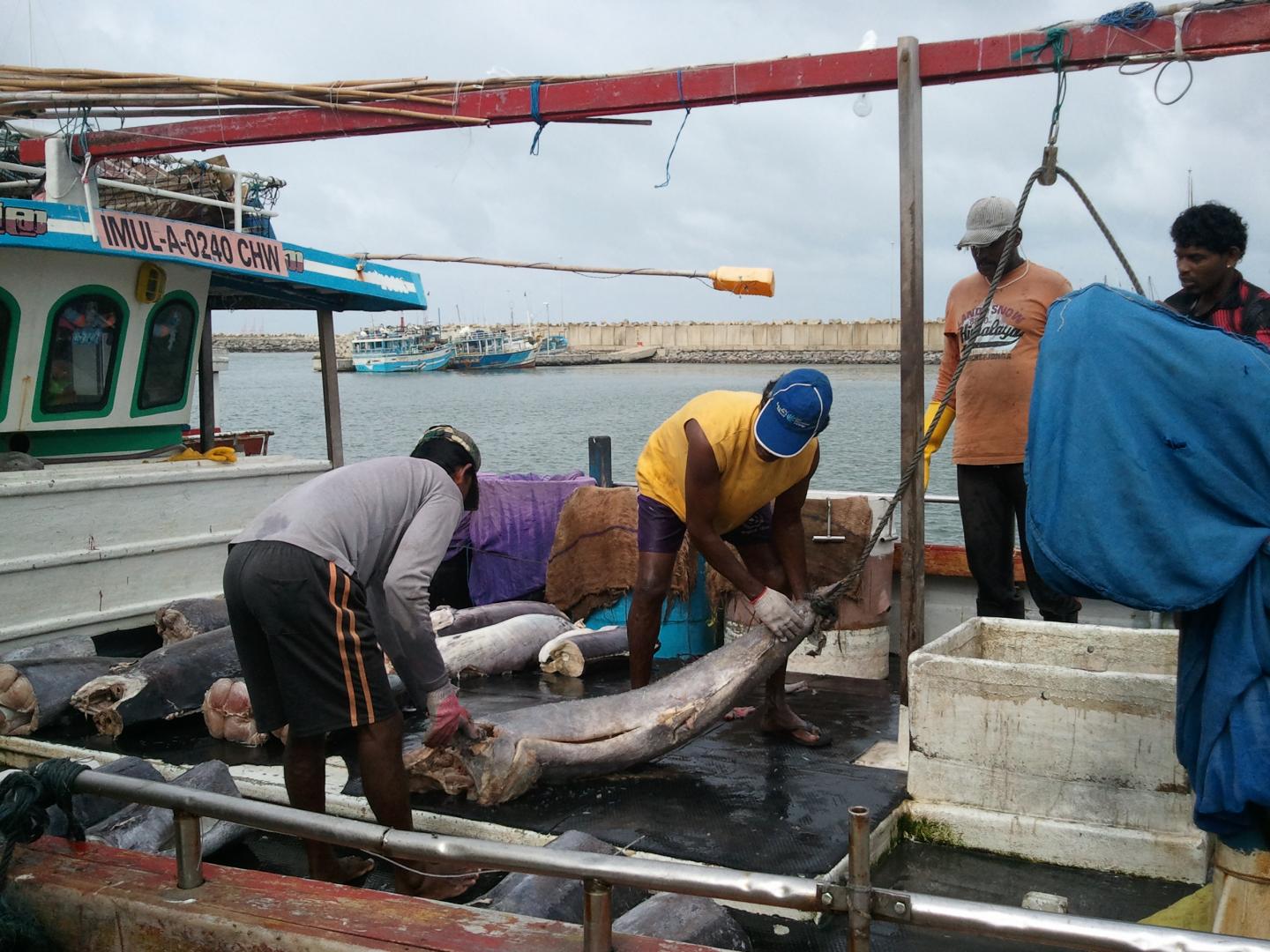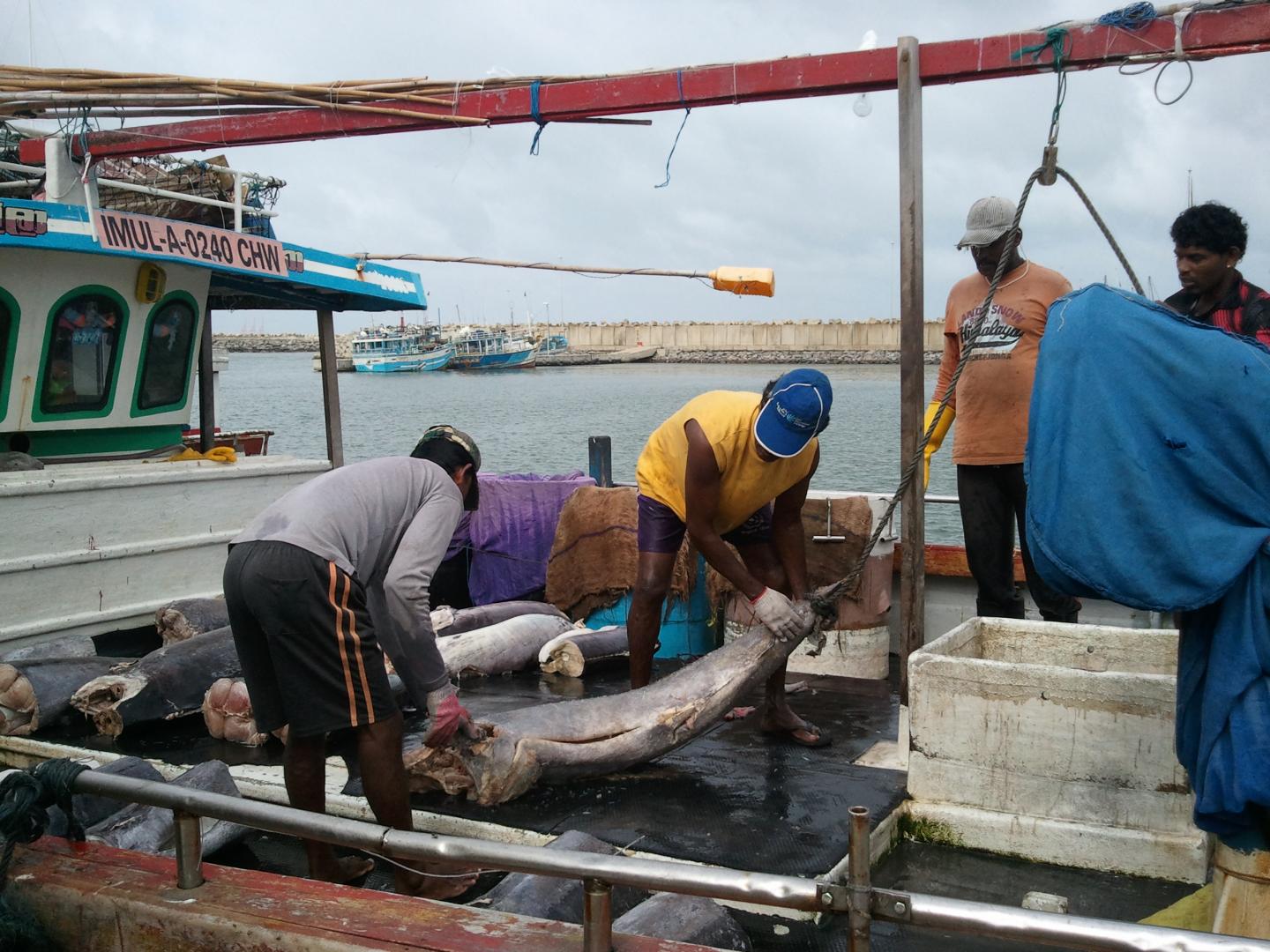
Credit: Michael Melnychuk/University of Washington
Research published this week in the Proceedings of the National Academy of Sciences suggests that successful fisheries management can be best achieved by implementing and enforcing science-based catch or effort limits. The study is authored by researchers from the University of Washington and California Environmental Associates.
The paper shows that, among 28 of the world's major fishing nations, there is wide variation in the effectiveness of fisheries management systems at meeting their objectives for productive fish populations. The authors considered several aspects of management systems and three elements seem to be critical to their success.
"Fisheries management systems are complex, with an incredible variety of tools and strategies used around the world, but this research shows the most successful systems consistently have a few management attributes in common," said lead author Michael Melnychuk, a research scientist in the UW's School of Aquatic and Fishery Sciences. "There is no silver bullet in fisheries management, but three attributes were consistently associated with positive outcomes: science-based stock assessments, limits on fishing pressure and adequate enforcement of those limits."
According to the paper, these three attributes were more important for productive fish and shellfish populations than the 10 other attributes they also considered, such as protecting sensitive habitats or collecting data on catch or body size. The analysis included the world's largest and most valuable fisheries and also some smaller ones.
"This is the first global assessment of how individual fish stocks are managed, and by collecting data at the individual fishery level we were able to identify what was key to success," said co-author Ray Hilborn, a UW professor of aquatic and fishery sciences."
The study relies on expert surveys from 182 fisheries scientists, managers, academics, industry members and environmental NGOs around the world. Survey respondents provided information fishery by fishery, covering aspects of research, management, enforcement and socioeconomics as well as measures of the current state and trends in fish abundance and fishing pressure. The researchers combined this information to produce an overall measure of how effective national fisheries management systems are at meeting their objectives and, in turn, how this affects fish populations.
"There are very few tools available to the field to benchmark the quality of fisheries management across countries," said Matthew Elliott, a co-author and principal with California Environmental Associates. "This survey takes an important step toward creating such a tool that can help compare not just the state of stocks but also the nature of management."
The authors suggest this survey can be used to evaluate the success of fisheries management systems, either for individual fisheries or across countries, and can be used to track future improvements in fisheries management.
"To date, good fisheries management has been summed up by the maxim, 'you'll know it when you see it.' Yet, timely information on the nature or quality of fisheries management across countries has been lacking," said Emily Peterson, a co-author and senior associate with California Environmental Associates. "This study provides a novel contribution by characterizing the status of fisheries management in the world's largest fishing nations."
The research shows that countries with depleted or declining fish populations often tend to be the ones that also have less-developed fishery management systems. This study suggests these countries have the greatest potential for improving the status of their fish populations, particularly by setting fishing limits based on stock assessments and adequately enforcing those limits.
"When fish population abundance declines, monetary subsidies to fishing fleets sometimes result in too many boats chasing too few fish. If these funds were instead directed into key components of fisheries management systems, that would improve the status of fish populations and the food they can sustainably provide for humans, especially in developing countries," said Melnychuk.
###
The work was funded by the David and Lucile Packard Foundation and the Walton Family Foundation.
For more information, contact Melnychuk at [email protected] or 604-817-9987.
Media Contact
Michelle Ma
[email protected]
206-543-2580
@UW
http://www.washington.edu/news/
############
Story Source: Materials provided by Scienmag





